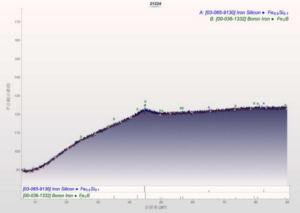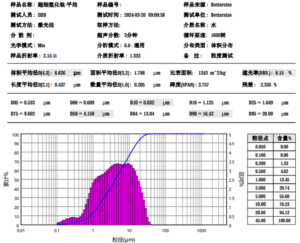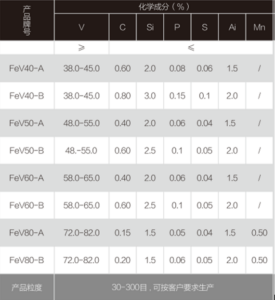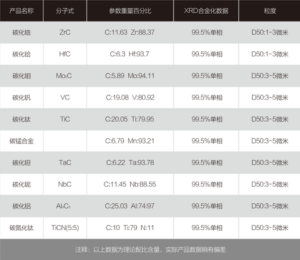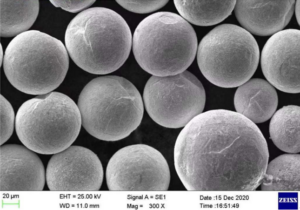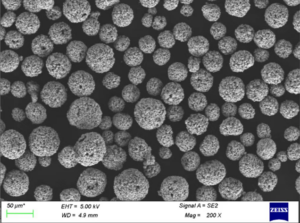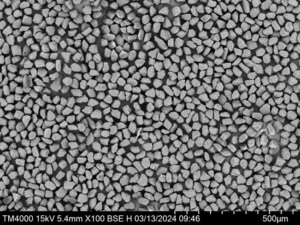Table of Contents
ToggleIntroduction
Molybdenum, an essential transition metal, plays a vital role in various industries owing to its exceptional properties. In this article, we explore the fascinating world of molybdenum powder, an integral form of this element that is highly sought after in numerous industrial applications. From its definition to production methods, market trends, and future prospects, we uncover the versatility of molybdenum powder and its significance in shaping modern technologies.
What is Molybdenum Powder?
Molybdenum powder is a finely divided form of molybdenum metal, distinguished by its small particle size and high purity levels. It is obtained through various production methods and possesses remarkable physical and chemical characteristics that make it invaluable in many industries.
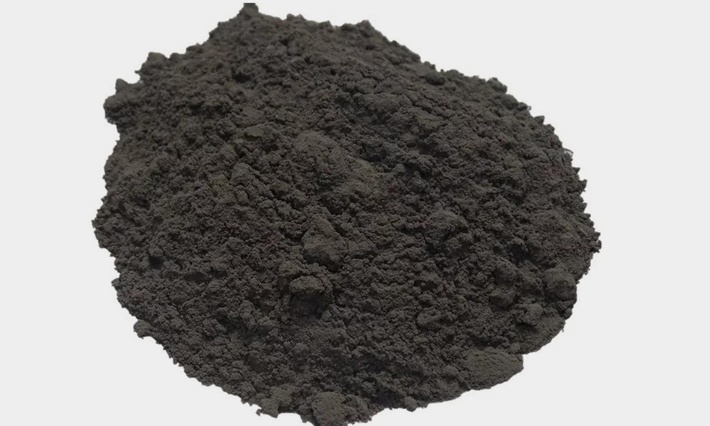
Uses of Molybdenum Powder
Metallurgy and Alloy Production
Molybdenum powder serves as a key component in the production of high-strength alloys, including stainless steel and superalloys. Its addition enhances the mechanical properties and corrosion resistance of these alloys, making them ideal for applications in aerospace, construction, and more.
Industrial Lubricants
Due to its low coefficient of friction and excellent high-temperature stability, molybdenum powder is used in manufacturing industrial lubricants and greases. These lubricants find use in heavy machinery, automotive parts, and other equipment operating under extreme conditions.
Electronics and Semiconductors
The semiconductor industry relies on molybdenum powder for the production of thin films and electronic components. It is widely used in creating gate contacts, interconnects, and metallization layers in integrated circuits.
Chemical Applications
Molybdenum powder finds applications in various chemical processes, such as catalysts for petrochemical refining and desulfurization. Its catalytic properties are crucial in promoting chemical reactions with high efficiency.
Properties of Molybdenum Powder
High Melting Point and Strength
Molybdenum powder exhibits an exceptionally high melting point, making it suitable for applications involving high temperatures, such as in aerospace propulsion systems and high-temperature furnaces. It also imparts improved strength to alloys when used as an additive.
Thermal Conductivity
One of the outstanding properties of molybdenum powder is its high thermal conductivity, which makes it valuable in heat sinks, electronic cooling devices, and applications requiring efficient heat dissipation.
Corrosion Resistance
Molybdenum powder provides enhanced corrosion resistance to alloys, particularly in harsh environments like marine and chemical processing, ensuring prolonged material durability.
Electrical Conductivity
Its moderate electrical conductivity makes molybdenum powder an excellent choice for electronic and electrical applications, where it can act as a conductive element in circuitry.
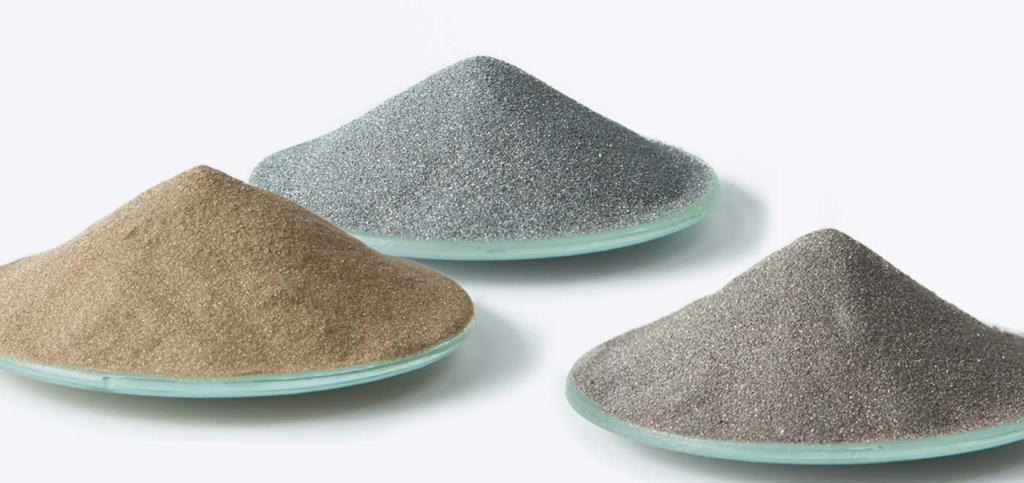
Production Methods of Molybdenum Powder
Reduction of Molybdenum Oxide
One of the common methods to produce molybdenum powder involves reducing molybdenum oxide with hydrogen or carbon at high temperatures, resulting in the formation of molybdenum metal.
Atomization
Atomization is a process that utilizes high-pressure gas or liquid jets to break molten molybdenum into tiny droplets, which then solidify into fine powder particles.
Mechanical Crushing
In this method, molybdenum ingots are crushed into fine particles, producing molybdenum powder with specific particle size distributions.
Grades and Specifications of Molybdenum Powder
Particle Size
Molybdenum powder is available in various particle sizes, ranging from micrometers to nanometers, catering to different industrial requirements.
Purity Levels
High purity is crucial in many applications, and molybdenum powder can be obtained with purity levels of 99.9% and above, ensuring top performance in critical industries like electronics and aerospace.
Application-specific Grades
Manufacturers produce molybdenum powder with tailored properties to meet specific application needs, customizing features like hardness, compressibility, and particle shape.

Market Trends and Applications
Aerospace Industry
The aerospace sector extensively utilizes molybdenum powder in turbine engines, airframe components, and rocket propulsion systems, benefiting from its high strength and resistance to extreme temperatures.
Energy Sector
In power generation and transmission, molybdenum powder plays a crucial role in manufacturing electrical contacts, switches, and power semiconductors, contributing to efficient energy utilization.
Medical Applications
Molybdenum powder is utilized in medical imaging devices and radiation therapy equipment due to its excellent X-ray shielding properties and biocompatibility.
Automotive Industry
In the automotive sector, molybdenum powder finds application in engine components, exhaust systems, and catalytic converters, enhancing performance and reducing emissions.
Benefits and Advantages of Molybdenum Powder
Improved Strength and Toughness
Molybdenum powder’s addition to alloys significantly improves their strength and toughness, making them more durable and capable of withstanding harsh operating conditions. This property is particularly valuable in the aerospace and automotive industries, where components are exposed to extreme stresses.
High-Temperature Applications
Due to its exceptional high melting point, molybdenum powder is perfect for applications that involve elevated temperatures. It is extensively used in the aerospace and energy sectors, where components must withstand extreme heat without compromising performance.
Enhanced Corrosion Resistance
Molybdenum powder enhances the corrosion resistance of alloys, protecting them from degradation caused by exposure to corrosive environments. This property makes it highly desirable in marine, chemical, and oil and gas industries.
Safety Considerations
Handling and Storage
Safety is of utmost importance when dealing with molybdenum powder. Proper handling and storage procedures should be followed to prevent accidents and exposure to harmful particles.
Workplace Safety
Industrial settings that handle molybdenum powder should implement safety measures to protect workers from inhalation and skin contact. Proper ventilation and personal protective equipment (PPE) are crucial for employee well-being.
Environmental Impact
Recycling and Sustainability
The recycling of molybdenum powder and molybdenum-based products helps reduce the demand for virgin materials and minimizes environmental impact. Sustainable practices are vital to ensure responsible resource utilization.
Waste Management
Proper waste management is essential to prevent the release of molybdenum particles into the environment. Industries must adhere to regulations for the safe disposal and recycling of molybdenum-containing waste.
Future Prospects and Innovations
Nanotechnology Applications
The unique properties of molybdenum powder make it a promising material in the field of nanotechnology. Researchers are exploring its potential in nanocomposites, nanoelectronics, and other advanced applications.
Additive Manufacturing
Additive manufacturing, or 3D printing, is revolutionizing various industries. Molybdenum powder’s compatibility with this manufacturing technique opens up new possibilities for complex designs and lightweight structures.

Conclusion
Molybdenum powder stands as a true wonder in the world of industrial applications. Its exceptional properties and versatility make it indispensable in key sectors like aerospace, electronics, and energy. As technology continues to advance, molybdenum powder is likely to play an even more significant role in shaping our future, propelling innovation and progress across various industries.
FAQs
1. Is molybdenum powder the same as molybdenum oxide?
No, molybdenum powder is the elemental form of molybdenum, whereas molybdenum oxide is a compound that contains oxygen and molybdenum.
2. Can molybdenum powder be used in medical implants?
While molybdenum powder itself is not used directly in medical implants, molybdenum-based alloys are utilized in certain medical devices and implants due to their biocompatibility and corrosion resistance.
3. What safety precautions should be taken when handling molybdenum powder?
Workers should wear appropriate protective equipment, such as gloves and masks, to prevent inhalation and skin contact. Proper ventilation in the workplace is also essential to reduce exposure to airborne particles.
4. How does molybdenum powder contribute to sustainability?
Molybdenum powder can be recycled and reused, reducing the demand for new raw materials and promoting sustainable practices in various industries.
5. Can molybdenum powder be used in 3D printing?
Yes, molybdenum powder is compatible with additive manufacturing techniques like 3D printing, enabling the creation of intricate designs and innovative components.
